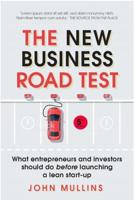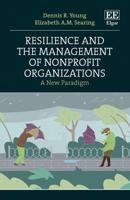Publisher's Synopsis
Crafting successful fundraising strategies is a crucial endeavor for any enterprise looking to secure financial resources. Having been involved in various fundraising initiatives, I can share insights that might help others navigate this complex landscape.
First and foremost, understanding your audience is key. In my experience, whether you're reaching out to individuals, corporations, or foundations, each group has its own motivations and interests. For instance, when I worked with a local nonprofit, we tailored our messaging to resonate with community values, highlighting how our projects directly benefited local residents. This personalized approach not only increased engagement but also fostered a sense of ownership among potential donors. Next, it's vital to have a clear and compelling narrative. People connect with stories more than statistics. When we launched a campaign for a youth mentorship program, we shared personal testimonials from both mentors and mentees. This human element made our cause relatable and stirred emotions, which is often a powerful driver for donations. Moreover, diversifying your fundraising methods can significantly enhance your chances of success. Relying solely on one type of fundraising-like events or online campaigns-can be risky. I remember a time when an outdoor gala we organized was nearly rained out, which severely impacted our fundraising goals. Since then, I've advocated for a mix of strategies, including online crowdfunding, grant applications, and corporate sponsorships. Each method has its strengths, and together they create a more robust fundraising strategy. Incorporating technology is another aspect that cannot be overlooked. There are numerous tools available that can streamline the fundraising process. For example, platforms like GoFundMe and Kickstarter have made it easier than ever to reach a wider audience. Additionally, using customer relationship management (CRM) software can help keep track of donor interactions and preferences, making your outreach more effective. Collaboration is also essential. Partnering with other organizations can amplify your reach and resources. I recall a successful campaign where we teamed up with local businesses to host a charity auction. Their networks and resources helped us raise more funds than we could have on our own. Finally, always be prepared for feedback and adapt your strategies accordingly. After each fundraising campaign, I make it a point to gather insights from my team and donors. This reflection helps identify what worked and what didn't, ensuring continuous improvement in future efforts. In conclusion, crafting successful fundraising strategies involves a blend of understanding your audience, telling compelling stories, diversifying methods, leveraging technology, collaborating with others, and being open to feedback. It's a dynamic process that requires creativity, perseverance, and a genuine passion for your cause. Every experience, whether a success or a setback, contributes to your growth and effectiveness in securing financial resources. Ultimately, it's about building relationships and fostering a community that believes in your mission.









